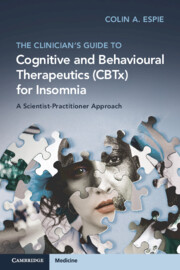Self-Management of Depression
With growing access to health information, people who suffer from depression are increasingly eager to play an active role in the management of their symptoms. The goal of self-management is to support patients in monitoring and managing their symptoms and provide them with additional resources to promote recovery, enhance quality of life, and prevent relapse. For clinicians, self-management holds promise for improving practice efficiency and efficacy by helping patients maximize their improvement outside of treatment sessions. Self-Management of Depression is written for clinicians who wish to empower their patients to take more active steps to manage depression. Chapters cover care management, self-assessment, exercise, self-help books and computer programs, meditation, and peer-support groups and strategies for how to incorporate self-management into a treatment plan are described. Reproducible handouts to support patients are also available online. This book is relevant to clinical psychologists, psychiatrists, psychiatric nurses, social workers and primary care physicians.
- Includes effective self-management practices for depression
- Provides guidance to integrate self-management into clinical practice
- Includes handouts with information for patients available to print online
Reviews & endorsements
"Although the intended audience includes mental health and primary care providers, the book is easy to read and has great value for people diagnosed with depression to help them understand the goals and process of self-management....The authors outline a number of goals and approaches that give patients an easy starting point, discussing the roles that professionals assume and those for which patients should take responsibility. They also put numerous studies into perspective and relate how successful programs work through the implementation stages. The book outlines the value of physical exercise and other nontraditional modalities such as meditation. Downloadable patient handouts are available from an associated web site....a valuable book that should be in the library of anyone who routinely cares for depressed patients."
--Doody's Review Service
"… extremely useful … highlights all the issues and flags up points to consider when planning a self-management programme for depression … timely … the book is good at addressing most of the queries and concerns that clinicians have when seeking to enact this model."
Psychological Medicine
Product details
November 2009Paperback
9780521710084
216 pages
234 × 157 × 10 mm
0.37kg
1 table
Available
Table of Contents
- Preface
- 1. The use of self-management for depression
- 2. Care management of depression: treatment of depression in primary care and the need for a multidisciplinary approach
- 3. Self-assessment instruments for depression
- 4. Self-help: the role of bibliotherapy and computerized psychotherapy in self-management for depression
- 5. Physical exercise as a form of self-management for depression
- 6. Self-management of depression using meditation
- 7. Cultivating social support: the role of peer-support in self-management
- 8. Putting it all together: applying self-management for depression in your practice
- Index.









